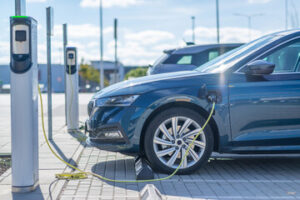If you’re thinking about buying an electric car, one of the first things you’ll want to do is get a charging station installed in your garage.

For most drivers, having an EV charger at home is a huge convenience. You can plug your car in at any time, day or night, without having to wait for a public charger. Visit https://www.drelectricllc.com/ to learn more about EV charger.
Level 1 chargers are the standard charging cable that comes with EVs, and they’re typically plugged into your house’s regular power outlet. These are slow and inefficient, so you may want to consider a higher-quality home EV charger with more features to make it easier to use.
You’ll also need to make sure that the circuit you plug your EV charger into is rated to handle the current the charging unit can deliver. This will help prevent damage to the charger and ensure that it doesn’t trip your circuit breaker.
The top level of EV chargers, Level 2, use a dedicated 240-volt outlet to provide faster charging speeds than the average household can offer with its regular outlet. They’re compatible with almost all EVs and can charge up to four times faster than a Level 1 charger.
They can also provide up to 25 miles per hour of charge. They’re best for EVs with large batteries and drivers who travel long distances or have multiple electric vehicles.
If you need to add more than 100 miles of range to your EV, you’ll need to upgrade to Level 2 chargers. They’re much more expensive than Level 1 chargers, but they can be a better choice for some people who need a fast EV charge.
You should be aware, however, that a Level 2 charger may require professional installation and a permit if you live in a jurisdiction where building permits are required. Additionally, the installation process can be difficult and dangerous if not done by a licensed electrician.
You’ll want to look for a charger that’s made of high-quality materials and designed by top professionals. This will give you confidence that it’ll function properly for years to come and that it’s a good investment. In addition, you should check that it’s backed by a warranty that covers any problems you may have with it.
Level 2 chargers are faster than Level 1 chargers and offer up to 80 amps of current. This means they can charge up to a full battery EV in a matter of hours, rather than the days it may take with a Level 1.
In addition to being faster, level 2 chargers also tend to be more energy efficient than level 1 chargers. This is because they use a lower amount of energy to charge a battery, which helps cut costs and reduce carbon output.
These benefits are particularly important for those with higher-end EVs, such as those that have a large battery, or for those who travel longer distances and want to maximize their electric driving range. Depending on the specifics of your driving style and where you live, you may also qualify for a tax credit to install a Level 2 EV charger in your home or workplace.
While you can easily find a Level 2 charger on the market, you need to make sure it is installed properly. Most EV chargers require a professionally installed 240-volt outlet on a dedicated circuit, and if you’re not familiar with electric equipment, you should consider hiring an electrician to do it for you.
The installation cost will vary based on the charger’s amperage and the size of your house’s electrical system, but it could cost anywhere from $100 to $1,000. That includes a professional inspection, rewiring, and testing to ensure the charger is up to code and meets NEC requirements.


